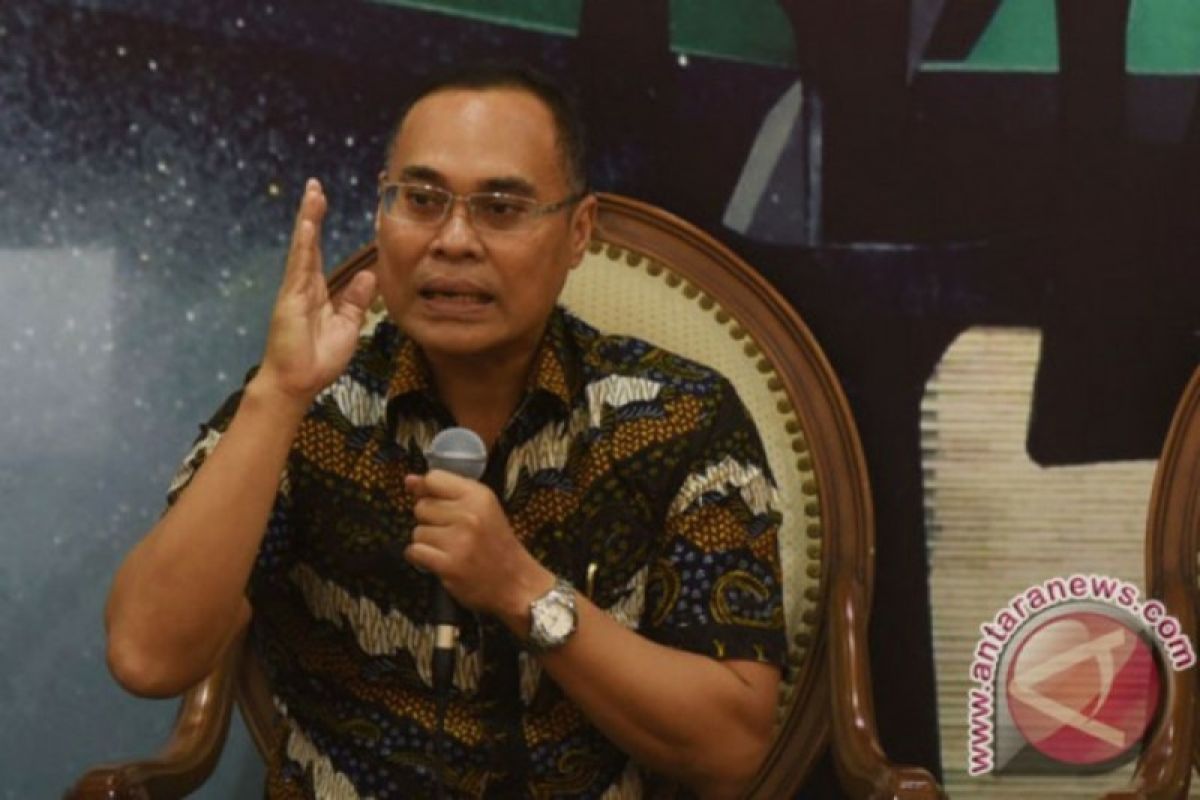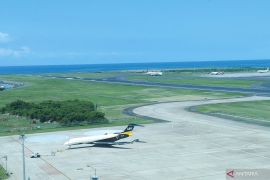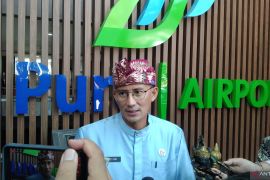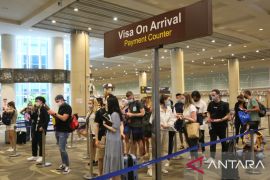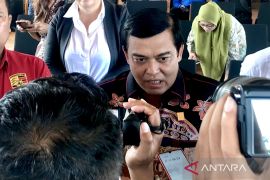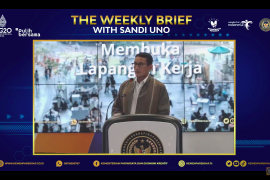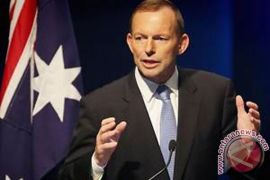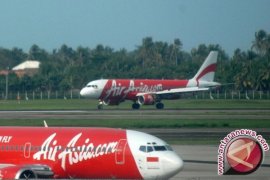Do not let the issue of high aircraft prices liberalize the national aviation industryJakarta (ANTARA) -
Professor of International Law at the University of Indonesia Hikmahanto Juwana urged the government to be circumspect in extending an opportunity to foreign airlines to operate on domestic routes.
"Do not let the issue of high aircraft prices liberalize the national aviation industry," Juwana noted in a statement here on Thursday.
The president had planned to invite foreign airlines to serve Indonesian domestic routes in order to curtail the high prices of airline tickets.
Juwana opined that though the discourse deserved praise, as the main objective was to reduce the prices of flight tickets for domestic routes, several aspects need to be taken into account, including the following three.
He expounded that firstly, under the aviation law, the principle of cabotage stipulates that only domestic airlines can operate on domestic routes. In fact, universally, foreign airlines are prohibited from serving domestic routes of a country.
There are exceptions to this case when no local airline is able to service these routes.
Highlighting the second crucial aspect, Juwana affirmed that permitting foreign airlines to serve domestic routes to lower the ticket prices is an inappropriate strategy.
In the long run, foreign airlines operating on domestic routes can result in the operations of local airlines eventually coming to a halt.
Thirdly, Juwana pointed to regrets possibly arising in future if foreign airlines began flying on a domestic route and were then banned. The government would then encounter difficulties in stemming the role of foreign airlines with legislation once the market has been opened.
Juwana suggested that all can take a cue from the banking industry, which at the outset, was the majority foreign ownership of national banks, as the government did not want to always bail out national banks in the event of problems.
In fact, Juwana stated that allowing foreign investors to own a local bank during that time was viewed as a solution, but it later turned out that several national banks were acquired by foreign investors. Furthermore, foreign investors were found to have reaped the profits.
Currently, when the focus is on reinstating foreign investors in national banks by amending the Banking Law, several foreign investors have raised objection, Juwana noted.
Juwana drew attention to the crucial lesson learnt that momentary solutions, in reality, offer market opportunities from certain industries open to foreign business actors. Market liberalization also occurred.
In fact, the principle of the Indonesian economy, as stipulated in Article 33 of the Constitution, has never changed, according to Juwana.
Related news: Transportation Minister asks airlines to offer affordable flight fares
Related news: Airlines expected to cut upper tariff limit by 15 percent
"Do not let the issue of high aircraft prices liberalize the national aviation industry," Juwana noted in a statement here on Thursday.
The president had planned to invite foreign airlines to serve Indonesian domestic routes in order to curtail the high prices of airline tickets.
Juwana opined that though the discourse deserved praise, as the main objective was to reduce the prices of flight tickets for domestic routes, several aspects need to be taken into account, including the following three.
He expounded that firstly, under the aviation law, the principle of cabotage stipulates that only domestic airlines can operate on domestic routes. In fact, universally, foreign airlines are prohibited from serving domestic routes of a country.
There are exceptions to this case when no local airline is able to service these routes.
Highlighting the second crucial aspect, Juwana affirmed that permitting foreign airlines to serve domestic routes to lower the ticket prices is an inappropriate strategy.
In the long run, foreign airlines operating on domestic routes can result in the operations of local airlines eventually coming to a halt.
Thirdly, Juwana pointed to regrets possibly arising in future if foreign airlines began flying on a domestic route and were then banned. The government would then encounter difficulties in stemming the role of foreign airlines with legislation once the market has been opened.
Juwana suggested that all can take a cue from the banking industry, which at the outset, was the majority foreign ownership of national banks, as the government did not want to always bail out national banks in the event of problems.
In fact, Juwana stated that allowing foreign investors to own a local bank during that time was viewed as a solution, but it later turned out that several national banks were acquired by foreign investors. Furthermore, foreign investors were found to have reaped the profits.
Currently, when the focus is on reinstating foreign investors in national banks by amending the Banking Law, several foreign investors have raised objection, Juwana noted.
Juwana drew attention to the crucial lesson learnt that momentary solutions, in reality, offer market opportunities from certain industries open to foreign business actors. Market liberalization also occurred.
In fact, the principle of the Indonesian economy, as stipulated in Article 33 of the Constitution, has never changed, according to Juwana.
Related news: Transportation Minister asks airlines to offer affordable flight fares
Related news: Airlines expected to cut upper tariff limit by 15 percent
Translator: Azis K/Bambang Purwanto
Editor: Gusti Nur Cahya Aryani
Copyright © ANTARA 2019
